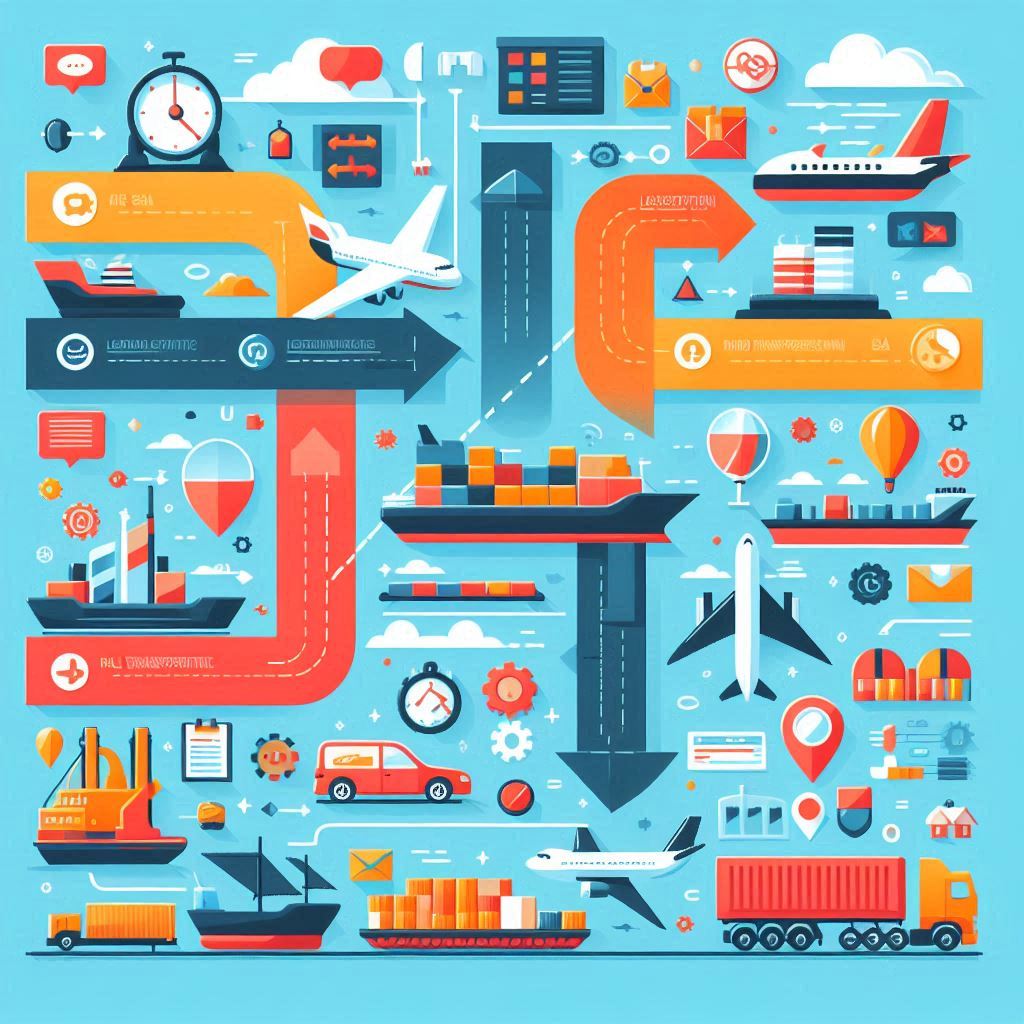Understanding the types of logistics is crucial for optimizing operations, reducing costs, and enhancing customer satisfaction. It enables businesses to streamline supply chains, manage resources effectively, and respond to market demands. This knowledge fosters better decision-making and ensures timely delivery of products, ultimately driving success in a competitive marketplace.
Logistics is vital for global traders as it facilitates the efficient movement of goods across borders. It ensures timely delivery, reduces costs, and helps manage inventory effectively. Good logistics supports compliance with international regulations, enhances customer satisfaction through reliable shipping, and allows traders to respond quickly to market changes, ultimately driving competitive advantage.
Subscribe to the Ex-works24/7 newsletter
Different Types of Logistics Services
A logistics provider is a company that helps businesses with the transportation and storage of goods. Their services can include:
Transportation
They arrange for products to be shipped by truck, ship, or plane to reach customers or stores.Warehousing
They provide storage facilities to keep products safe until they are needed.Inventory Management
They help businesses keep track of how many products they have and when to reorder supplies.Distribution
They manage the process of getting products from the warehouse to the final customer.Customs Clearance
For international shipping, they handle all the paperwork needed to get products through customs.
Types of Logistics - How To Choose One
When selecting a logistics provider, consider the following:
- Experience: Look for providers with a good track record in your industry.
- Services Offered: Ensure they provide all the services you need.
- Cost: Compare prices but also consider the quality of service.
- Customer Reviews: Check what other businesses say about their experiences.
- Technology: Look for providers that use modern technology for tracking and management.
Why Use a Logistics Provider?
1. Saves Time and Money – Logistics providers have the expertise and resources to handle shipping and storage efficiently. This can save businesses time and reduce costs related to transportation and warehousing.
2. Improves Focus on Core Business – By outsourcing logistics, businesses can focus on what they do best, like creating products or providing services, rather than worrying about how to get those products to customers.
3. Enhances Customer Satisfaction – A good logistics provider ensures that products are delivered on time and in good condition. Happy customers are more likely to return for future purchases.
4. Scalability – As businesses grow, their logistics needs can change. A logistics provider can adapt to these changes, helping businesses scale up or down as needed.
5. Access to Technology –Many logistics providers use advanced technology to track shipments and manage inventory. This technology can give businesses valuable insights into their supply chain.
In conclusion, logistics is more than just moving products; it’s about creating a smooth and efficient process that meets customer needs. Understanding the different types of logistics helps businesses improve their operations and enhance customer satisfaction. Whether it’s getting supplies in, shipping products out, or managing returns, effective logistics can make all the difference!
Frequently
Asked Questions
The main types of logistics include:
- Inbound Logistics: Focuses on receiving and storing materials needed for production.
- Outbound Logistics: Involves delivering finished products to customers.
- Third-Party Logistics (3PL): Outsourcing logistics services to another company.
- Reverse Logistics: Manages the return of products from customers back to the company.
- Global Logistics: Handles the movement of goods across international borders.
Inbound logistics is crucial because it ensures that a business has the necessary materials to produce its products. Efficient inbound logistics helps prevent delays in production and minimizes costs related to inventory management.
3PL providers offer a range of logistics services, including transportation, warehousing, and inventory management. They allow businesses to focus on their core operations while leveraging the expertise and resources of logistics professionals.
Reverse logistics benefits businesses by efficiently managing product returns and recycling processes. It can improve customer satisfaction by making returns easier and can also help recover value from returned items, whether through resale or recycling.
Global logistics face several challenges, including customs regulations, tariffs, language barriers, and varying transportation infrastructures. Businesses must navigate these complexities to ensure timely and compliant delivery of goods across borders.




